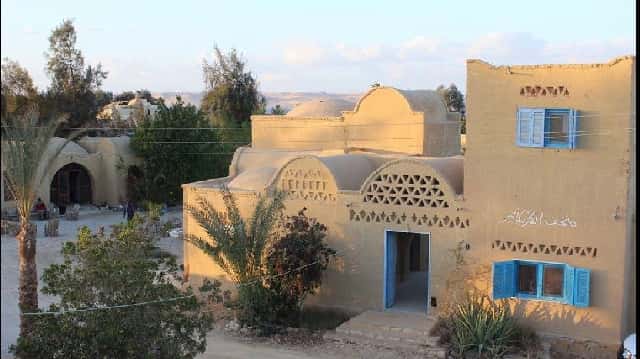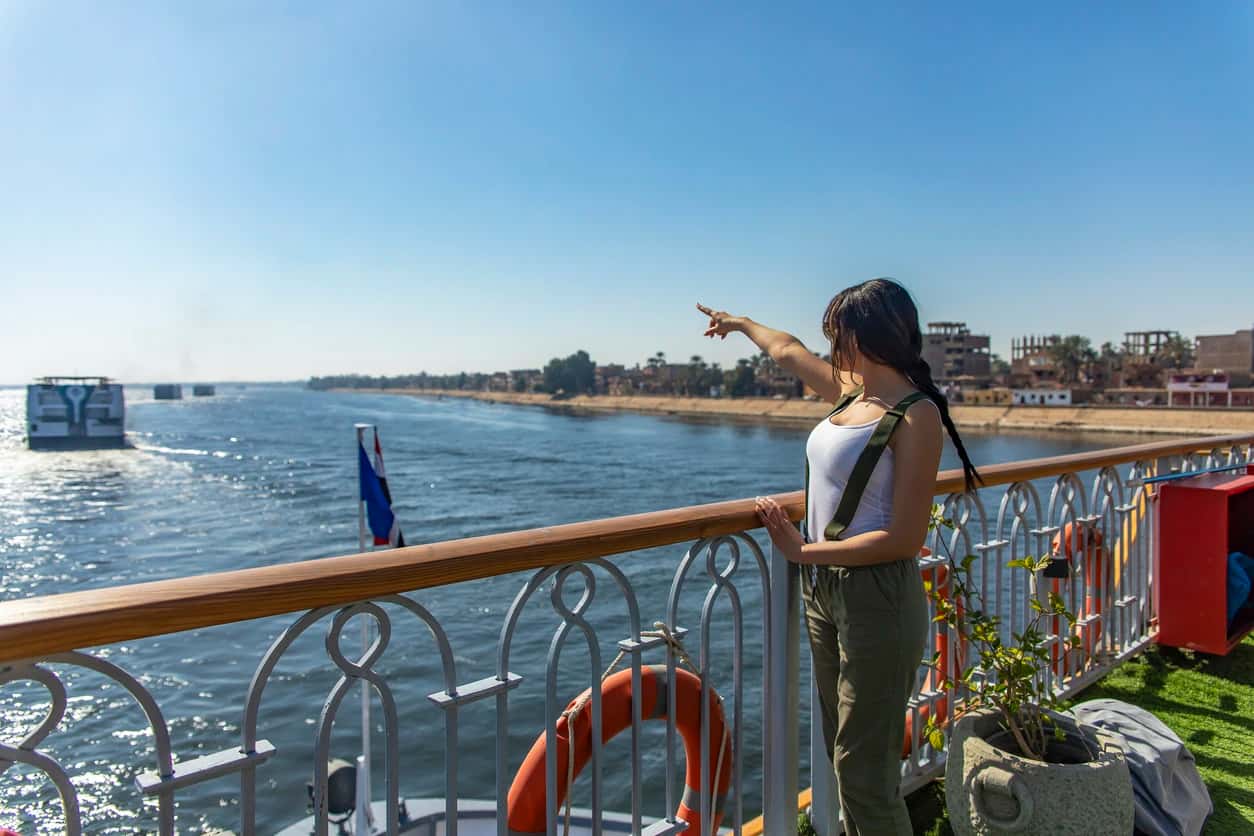
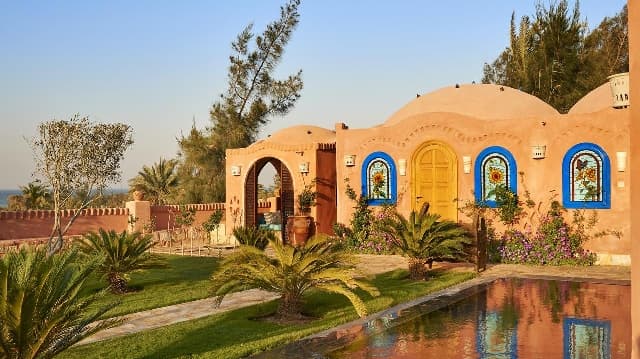
Dive into the untouched beauty of Faiyum Egypt, where desert meets life. Sandboard, stargaze, and explore ancient secrets. Visit now!
Just 100 km from Cairo, Faiyum is Egypt’s only artificial oasis, fed by the Bahr Yussef Canal. This ancient region blends lush landscapes, archaeological treasures, and ecological wonders. Highlights include Wādī al-Ḥītān’s whale fossils, Egypt’s oldest road, Lake Qarun’s birdlife, and the country’s largest waterfalls at Wadi El Rayan. Famed for its Greco-Roman Faiyum Portraits, this overlooked gem offers a serene, culture-rich escape beyond Egypt’s usual tourist paths.
Faiyum lies 100 km southwest of Cairo in a lush desert basin linked to the Nile. This oasis has supported life for over 4,000 years and blends fertile farmland with desert landscapes.
Faiyum is a 1.5–2 hour drive from Cairo by private car or around 2.5 hours by bus. Renting a car allows more flexibility and scenic stops like Dahshur.
Faiyum offers ancient farming traditions, local crafts in Tunis Village, birdlife at Lake Qarun, waterfalls at Wadi El Rayan, and historic waterwheels still in use today.
Visit between October and April for mild weather. For fewer crowds, go midweek and avoid national holidays.
Faiyum is famous for its fusion of ancient history, ecological marvels, and rural charm. It's known for:
These treasures make Faiyum Egypt an unmatched destination for eco-tourism, cultural tourism, and outdoor adventures.
Beyond Faiyum’s green fields, ancient ruins rest quietly in the desert, offering a rare glimpse into Egypt’s layered past—far from the usual crowds.
Once a major religious center for the crocodile god Sobek, this city featured a sacred live crocodile, Petsuchos. Remnants still exist north of modern Faiyum.
An unmarked Middle Kingdom temple near Lake Qarun, known for its precise stonework and a sealed chamber with an unknown purpose.
A Greco-Roman town founded by Ptolemy II. Its Avenue of Lions and mudbrick walls mark a once-thriving port and trade hub.
A small yet well-preserved Ptolemaic temple, aligned with the sun during the winter solstice,
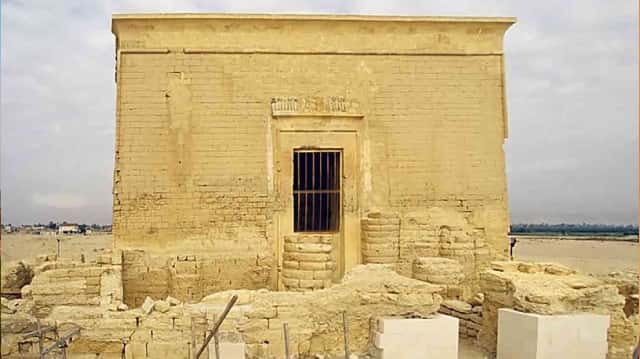
A UNESCO World Heritage Site, Wadi El Hitan reveals fossilized whale skeletons dating back 40 million years, showcasing the evolution of whales from land-dwelling to marine creatures. Set deep in the Western Desert, it holds over 400 specimens, including the massive Basilosaurus and Dorudon, making it a must-see for paleontology lovers and nature photographers.
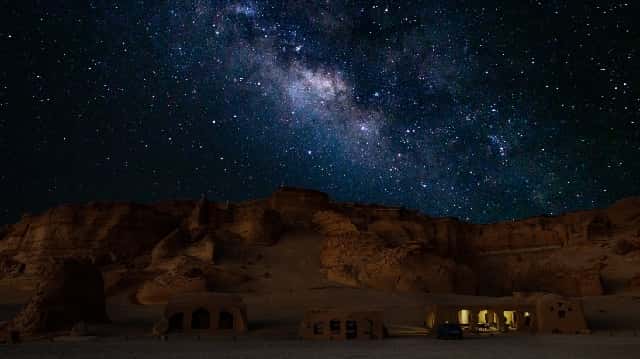
This protected reserve features two man-made lakes linked by Egypt’s only waterfalls. Surrounded by golden dunes and cliffs, Wadi El Rayan is perfect for kayaking, wildlife spotting, and sandboarding. The cascading falls offer a rare sight in Egypt’s desert landscape.
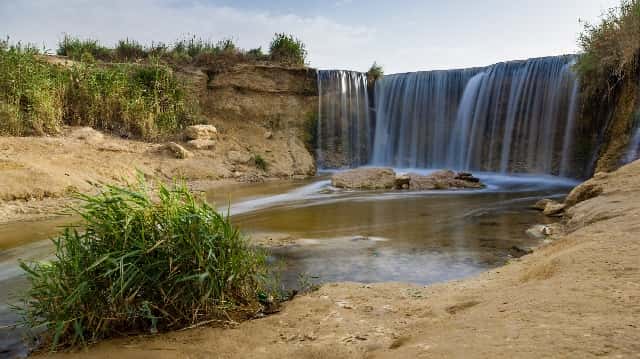
Near Wadi El Hitan, Magic Lake dazzles with color-shifting waters caused by sunlight and minerals. Ideal for swimming, camping, and sandboarding, it offers a serene escape amid desert dunes and is believed to have therapeutic properties.
One of the world’s oldest natural lakes, Lake Qarun supports diverse birdlife despite its increasing salinity. A hotspot for birdwatching, fishing, and boating, it forms a vital part of the Faiyum Oasis ecosystem.
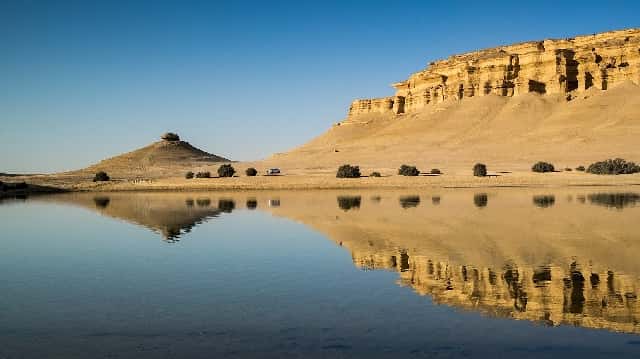
North of Lake Qarun, Gabal Qatrani hosts a 35-million-year-old petrified forest—one of the largest on Earth. Fossilized trees, sea shells, and marsh plants offer a glimpse into Faiyum’s prehistoric, oceanic past. Many of these finds are displayed at the open-air Jebel Qatrani Museum.
Dating back over 1,000 years, the region’s iconic wooden waterwheels reflect ancient irrigation ingenuity. Still turning today, they are beloved symbols of Fayoum’s agricultural legacy and popular subjects for cultural tourism and photography.
Nestled by Lake Qarun, Tunis Village is Faiyum’s artistic heart. Known for its pottery studios, art schools, and lush surroundings, the village invites visitors to engage in workshops, browse galleries, and enjoy authentic Egyptian cuisine in a peaceful, creative setting.
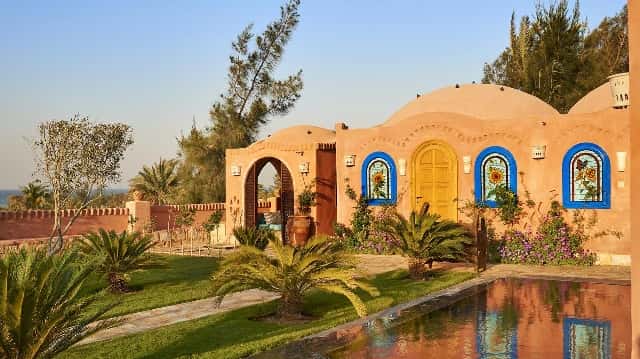
Faiyum’s cuisine draws from its rich farmlands and lakes, offering fresh produce, local fish, and traditional dishes like feteer meshaltet and herb-rich fish tagine.
Faiyum’s culture thrives in its markets, artisan workshops, and daily village life. From handmade crafts to warm hospitality, the region offers authentic Egyptian experiences away from mass tourism.
Faiyum’s landscapes invite horseback riding by the lake, sandboarding near Magic Lake, and stargazing through desert camping—ideal for nature lovers and explorers.
Bustling with colors and scents, the markets offer local spices, handmade textiles, and beloved dishes like koshari and fatta, with sugarcane juice as a refreshing staple.
Lake Qarun draws winter bird migrations, while the Fayoum Nature and Culture House at Wadi El Rayan reveals the area’s deep ecological and archaeological history.
Every interaction in Faiyum—whether in markets, workshops, or festivals—connects visitors to
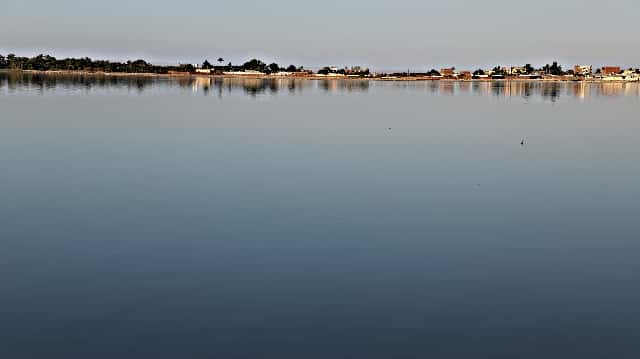
Faiyum hides remarkable sites beyond the typical tourist trail, including the fossil-rich Wadi El Hitan, the shifting hues of Magic Lake, Egypt’s largest waterfalls at Wadi El Rayan, a petrified forest, and ancient ruins like Qasr El Sagha.
Engage with Faiyum’s heritage by visiting Tunis Village for pottery-making, exploring vibrant markets, tasting local dishes like fatta and koshari, or joining cultural festivals and workshops.
October to April offers pleasant weather and fewer crowds, especially midweek. Shoulder months—October and April—are ideal for quiet exploration.
Highlights include Wadi El Hitan’s whale fossils, the color-shifting Magic Lake, Egypt’s only major waterfalls at Wadi El Rayan, and 35-million-year-old petrified trees.
Yes. Visit Crocodilopolis, dedicated to the god Sobek; Qasr El Sagha, an ancient desert temple; and Dimeh El Sebaa, a Greco-Roman city with the Avenue of Lions.
Faiyum lies about 100 km southwest of Cairo, in Egypt’s Western Desert.
It’s famed for its oasis scenery, waterwheels, whale fossils, Lake Qarun, and archaeological treasures.
Explore Wadi El Hitan, relax by Wadi El Rayan, birdwatch at Lake Qarun, visit Tunis Village, and hike to the Magic Lake.
Yes, the most notable are in Wadi El Rayan, right in Faiyum.
Absolutely. It offers a unique mix of history, nature, and culture—without the crowds.
Add Faiyum to your luxury trip to Egypt—unwind in peaceful landscapes, explore ruins, and enjoy curated cultural experiences. Start planning now!
